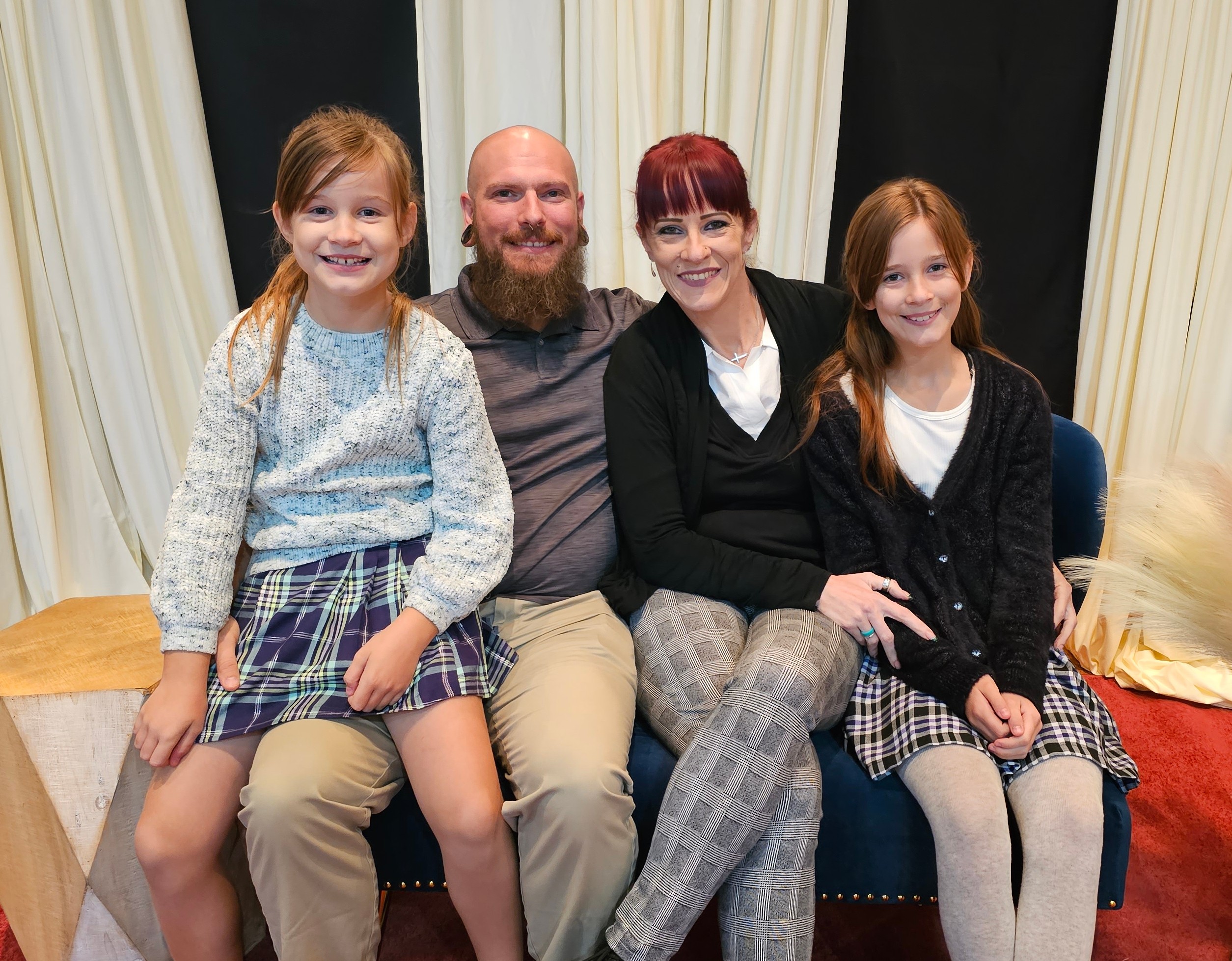Jenn Cullen knows better than most that it’s never too late to pursue a dream life.
As a case manager, she has seen the effects of dependence issues firsthand. However, it’s her personal experience with a decades-long battle that has taught her the greatest lesson.
Today, the University of Arizona Global Campus student Jenn is in active recovery and works to inspire others to find their path to sobriety. She participates in weekly meetings to help new and existing intakes find their own ways to cope and thrive in their respective journeys.
“Abstinence is just removing the substance from yourself, where sobriety comes when you remove the defects that come from your substance,” she explains. “It just takes encouragement for someone to believe in themselves.”
Jenn’s pursuit of service has also led her back to her education, where she is seeking a Bachelor of Arts in Applied Behavioral Science and Bachelor of Arts in Social and Criminal Justice* to further her knowledge base and become an even bigger inspiration.
Inspired After Injury
Jenn grew up in Florida, where she was under the care of her grandmother. Both her parents were largely absent due to their own struggles with addiction. However, Jenn’s relationship with her grandmother wasn’t as strong, and Jenn started working in a bar as soon as she finished high school.
Working in a bar turned out to cause unforeseen issues. Beyond the immediate temptations, she fell down a set of stairs and hit her head, causing a traumatic brain injury that put her behind in her work and post-secondary education.
There’s so many aspects to behavioral health and addiction recovery and mental health that go together, in some cases, and it gave me this thirst for knowledge again.
Before her accident, Jenn recalls an immense propensity for math and numbers, which the lingering effects of the fall left affected. Despite these challenges, she found herself recovering in ways she never imagined.
“The brain is an amazing thing,” she says. “We only use a small percentage of it, and other portions of the brain will start to step up when other parts fail.”
Even with these shortcomings, Jenn remains an example of recovery from trauma, as she regained nearly all her mental and physical functions.
‘It’s become the biggest part of my story,” she says, “because I’ve inspired other people who have had traumatic brain injuries to pursue their dreams.”
Success in Sobriety
Even before her accident, Jenn faced addiction. She started abusing alcohol as a preteen and continued on a similar path with drugs in the following years. Eventually, she moved to Arizona, but the habits remained.
Jenn didn’t have a particular revelation about turning a corner in life, but a series of events led to her taking recovery seriously. One particular bout led her to staying in a hotel, which was located near a treatment center. During an allergic reaction, which nearly robbed her of life, she found a card in her pocket for that exact same rehab center. When she called the center for intake, her condition was dire, and she recalls being amazed at her own survival.
“The amount of drugs I was doing should have killed me,” Jenn says. “The fact that it didn’t always serves to remind me that I must have a greater purpose in this life.”
While moving through treatment, Jenn met Cassandra, a fellow addict whose story mirrored hers almost exactly. It was there that she put a label on her addictions for the first time, and her subsequent recovery began.
“Without hearing another addict’s story, I would have never found the help that I needed,” she remembers.

Addiction to Academics
Jenn will be six years sober in August 2025, after struggling with addiction for over 31 years.
As part of her recovery, she had to find a job. That same treatment center on the corner by that hotel, where she went through her detox and started on her sobriety path, ended up being her first job. Her chosen path led her to a role as a peer recovery specialist, where she enjoyed the gratification of having an occupation.
UAGC is her third attempt at higher education, after being forced to stop right after high school and her accident. As a child, Jenn describes herself as having a “thirst for knowledge” along with an affinity for math and numbers. Therefore, pursuing a degree fits synonymously into her mission of self-betterment.
“I don’t want to limit myself to just substance use, being a licensed professional counselor or a clinical coordinator for prisons or jails,” Jenn explains. “There’s some way to bring all that in. I’ve lived on both sides of the fence. I’ve lived on the opposite side of the bars and this side of the bars, as well as substance use treatment — I’ve lived on both sides of that fence as well.”
Jenn sees the connectivity in her chosen field, not just through her struggles, but in the potential to bring those concepts together for holistic treatments.
“There’s so many aspects to behavioral health and addiction recovery and mental health that go together, in some cases,” she says, “and it gave me this thirst for knowledge again.”
As a mother to an adult-aged son and two teenage daughters, Jenn balances UAGC coursework with parenthood and her full-time role as a case manager at an outpatient facility.
Ultimately, the dedication to her life and its many details keeps Jenn motivated to pursue purpose. She chairs Monday night meetings for recovering addicts, an act of service that remains a symbol of pride to her children — and herself.
“What inspires me is being able to look in the mirror and have admiration for myself again,” she says. “Going from having a traumatic brain injury and being homeless on the streets, lost in alcohol and drug addiction, to being a 4.0 GPA student with two degrees and an honors concentration in the honors program, and a member of two different honor societies as a 48-year-old mom and raising two kids, a husband and a mother-in-law, and going to work full-time and all the other things that I do — that inspires me.”
--
*These programs are not designed to meet the state educational requirements for a specific professional license or certification in any state. Students seeking licensure or certification in a particular profession shall carefully research the requirements prior to enrollment and regularly review the requirements as they are subject to change. Requirements vary by state. The University of Arizona Global Campus does not guarantee that any professional organization will accept a graduate’s application to sit for any exam for the purpose of professional certification. Further, a criminal record may prevent an applicant from obtaining licensure, certification, or employment in their field of study.
